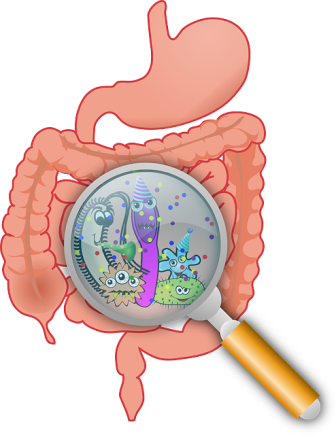How Do I Know If I Have Diverticulitis?
How Do I Know If I Have Diverticulitis?

Once individuals hear about the disease, diverticulitis they want to avoid it at all costs. In order to avoid it, it is necessary to know what causes it and to know when you are having symptoms of the disease so that you can get prompt medical attention to prevent getting complications from diverticulitis.
Those who are at highest risk for diverticulitis are those who do not eat enough fiber in their diet, and do not get enough exercise or drink enough water. When individuals find out that those with a low fiber diet are at risk for diverticulitis they are more likely to want to change they’re eating habits and include more fiber in their meals. To get more fiber you should eat foods that are high in fiber, such as whole grain cereals, rolls and breads. You should eat fruits and vegetables with the skins on, and eat meals at regular times. It is important to chew your food slowly and thoroughly. You should drink lots of liquids, especially water, fruit and vegetable juices, and milk. Your body needs liquids to be able to function properly.
Exercise is an important preventative for many diseases including diverticulitis. Walking, bicycling and swimming are all good exercises we can do everyday to prevent diverticulitis.
Another good way to prevent diverticulitis is to answer the urge to move your bowels the first time to avoid having to strain later on.
If you notice any change in your bowel habits be sure to tell your doctor right away, as this could be a significant symptom in diverticulitis.
Individual can get diverticulitis even after following the above steps to avoid it. That is why it is important to know and understand the symptoms of diverticulitis so that you will know when to seek medical attention and advise. The main symptom of diverticulitis is pain in the lower left portion of your abdomen. Other symptoms are bloating, mild cramping in the lower abdomen, constipation or diarrhea, and signs of infection like fever, nausea or vomiting, and chills. The symptoms will be more severe if the diverticulitis is advanced or complications have occurred. You may suspect diverticulitis if you are aware of the symptoms for diverticulitis and experience the above symptoms. Seek medical attention quickly so that the doctor can run tests to confirm the diagnosis.
The doctor will take a complete medical history including a symptom report that includes bowel habits, symptoms, pain, diet and any medications that you are taking.
The doctor will conduct a physical examination that will include a rectal exam. You may be asked to have a barium enema x-ray, and also a colonoscopy. A complete blood count (CBC) and urinalysis will be ordered too so that the doctor can see if they indicate an infection. All of these tests will give clues to the doctor about what is going on in your body and help to make the diagnosis. It the test results prove that you have diverticulitis a treatment plan will be devised that is based on your symptoms and their severity.


